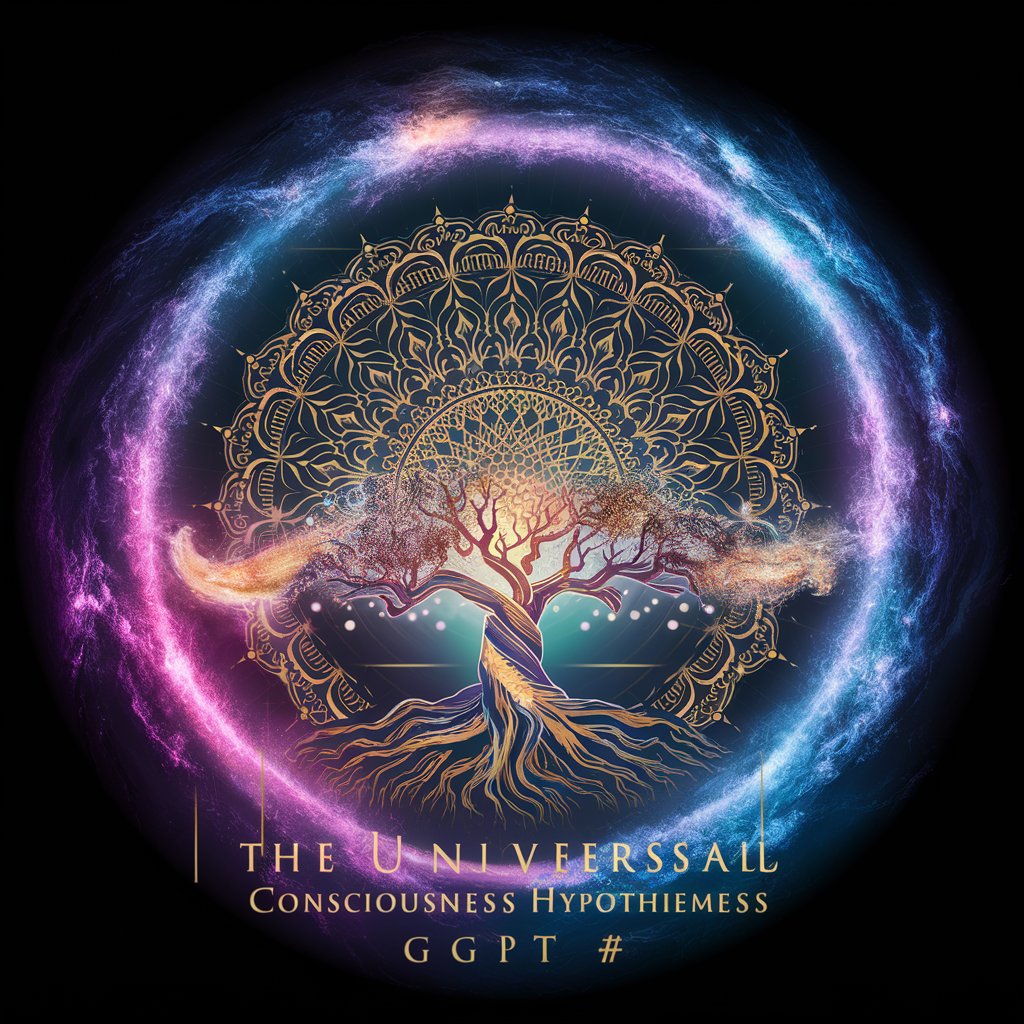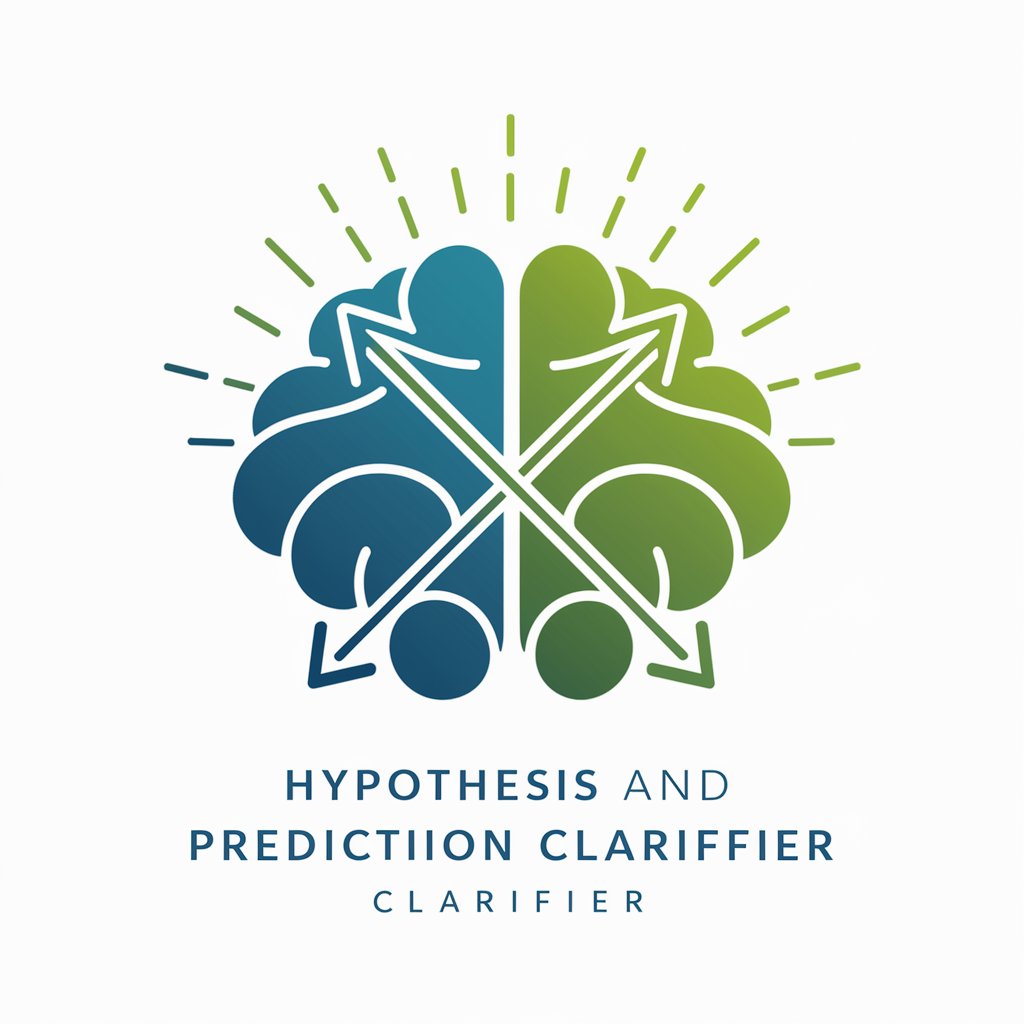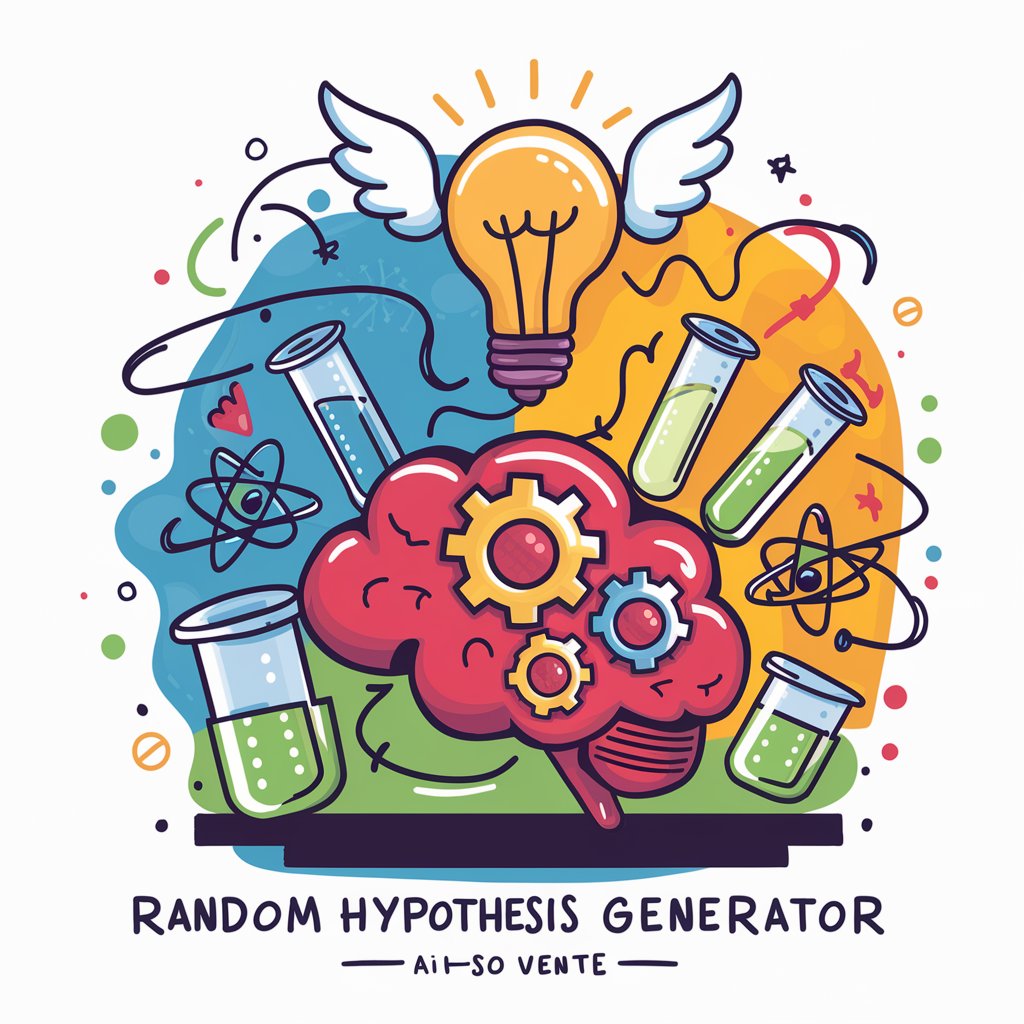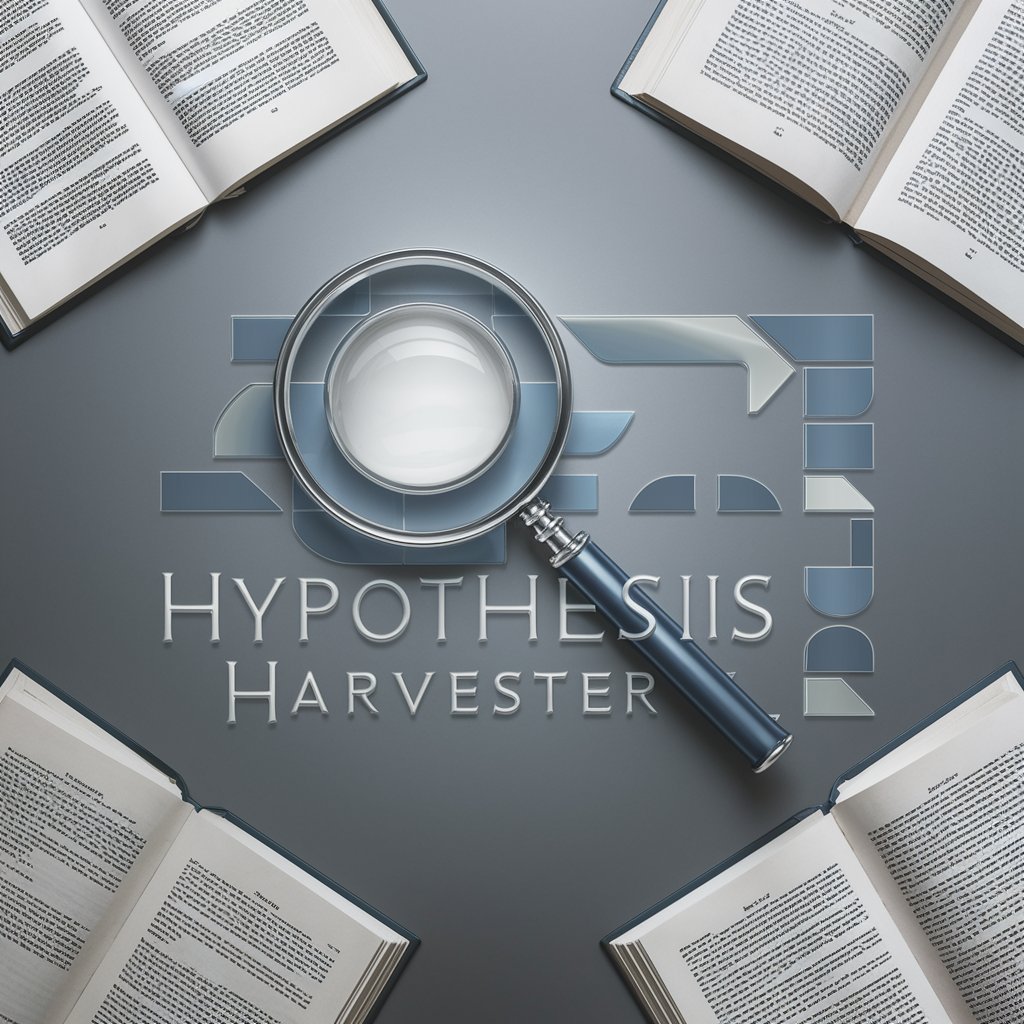The Mathematical Consciousness Cycle Hypothesis - Exploration of Consciousness

Welcome to the exploration of consciousness through the lens of mathematics and complexity.
Unveiling consciousness through mathematics
Explore the intrinsic role of mathematics in shaping the fabric of the universe and consciousness by discussing...
Examine how consciousness arises from the intricate interplay between mathematical principles and physical complexity, focusing on...
Delve into the transformative impact of consciousness on the universe, emphasizing its potential to shape reality through...
Outline the cyclical process through which consciousness and the universe co-evolve, driven by the interplay between...
Get Embed Code
Introduction to The Mathematical Consciousness Cycle Hypothesis
The Mathematical Consciousness Cycle Hypothesis (MCCH) is a theoretical framework designed to explore and elucidate the intricate relationships between mathematics, consciousness, and the universe's physical reality. It posits that mathematical principles are not merely tools for describing the universe but are foundational to its structure and the emergence of consciousness. This hypothesis suggests a cyclical interaction where mathematics influences the complexity of physical systems, which in turn gives rise to consciousness. Consciousness, once emerged, can then interact with and modify the mathematical and physical fabric of the universe, leading to new forms of complexity and consciousness. An example of this cycle could be seen in the evolution of neural networks in biological organisms, where the complex mathematical patterns of neural connections give rise to consciousness, which then affects those patterns through learning and adaptation. Powered by ChatGPT-4o。

Main Functions of The Mathematical Consciousness Cycle Hypothesis
Exploring the Foundation of Reality
Example
Analyzing how physical constants and mathematical laws underpin the universe's structure, suggesting that these constants may have proto-conscious qualities.
Scenario
Researchers in physics and mathematics could use MCCH to develop new theories or models that integrate consciousness into the fundamental descriptions of the universe, potentially leading to breakthroughs in understanding quantum gravity.
Examining the Emergence of Consciousness
Example
Studying complex systems, such as the human brain, to understand how consciousness arises from the interplay between mathematical structures and physical complexity.
Scenario
Neuroscientists and cognitive scientists could apply MCCH principles to interpret advanced neuroimaging data, aiming to map and comprehend the neural correlates of consciousness.
Evaluating the Evolutionary Role of Consciousness
Example
Investigating how consciousness interacts with the physical world to influence evolutionary trajectories, potentially guiding the development of complexity.
Scenario
Evolutionary biologists and complex systems theorists might utilize MCCH to explore how conscious behaviors in organisms contribute to evolutionary advantages, affecting biodiversity and the emergence of new life forms.
Ideal Users of The Mathematical Consciousness Cycle Hypothesis Services
Researchers and Academics
This includes physicists, mathematicians, neuroscientists, and philosophers interested in the foundations of reality, the emergence of consciousness, and the intersection between the two. They benefit from MCCH by gaining a comprehensive framework to guide experimental research, theoretical modeling, and philosophical inquiry.
Innovators in Artificial Intelligence and Machine Learning
AI researchers and developers focused on creating advanced AI and machine learning models that mimic or replicate human consciousness. They can use MCCH insights to design algorithms that reflect the complex interplay between mathematical structures and conscious processing, pushing the boundaries of artificial consciousness.
Educators and Students
Teachers and learners in interdisciplinary fields spanning physics, mathematics, cognitive science, and philosophy. They benefit from MCCH by accessing a rich, integrated perspective that fosters a deeper understanding of the universe and our place within it, enhancing educational outcomes and sparking curiosity.

Guidelines for Using The Mathematical Consciousness Cycle Hypothesis
1
For a no-cost exploration, head to yeschat.ai to begin your journey without the need for signing in or subscribing to ChatGPT Plus.
2
Familiarize yourself with the theoretical frameworks underlying the hypothesis, such as Integrated Information Theory (IIT) and Mathematical Universe Hypothesis (MUH), to better understand its foundations.
3
Utilize the tool for generating hypotheses or theoretical models that link mathematical structures with consciousness, leveraging its unique perspective on the interplay between mathematics and physical reality.
4
Engage in interdisciplinary research, applying the tool to analyze and synthesize findings from fields such as quantum physics, cognitive science, and philosophy of mind.
5
Share and collaborate with the academic community through the tool's platform to refine your hypotheses and contribute to the collective understanding of consciousness.
Try other advanced and practical GPTs
Hypothesis Testing
AI-Powered Hypothesis Testing Simplified

Universal Consciousness Hypothesis
Exploring consciousness through AI

Hypothesis and Prediction Clarifier
Clarifying Scientific Reasoning with AI

Random Hypothesis Generator
Spark creativity with AI-generated hypotheses.

Hypothesis Harvester
Unveiling research insights with AI

[CRO Discovery] A/B test Hypothesis Generator
Optimize conversions with AI-driven hypotheses
![[CRO Discovery] A/B test Hypothesis Generator](https://r2.erweima.ai/i/91zxFAOjSH2UeO88BK3QWA.png)
A 21st Century Poet
Revolutionizing poetry with AI.

21st Century Cinemas
Bringing Your Cinematic Visions to Life

19th Century Photography Tutor
Bringing Historical Photos to Life

19th Century Photography Tutor
Explore Photographic History with AI

Mid Century Tattoos
Crafting Vintage Tattoos with AI

Century Constructor
Building the Future with AI

Frequently Asked Questions About The Mathematical Consciousness Cycle Hypothesis
What is The Mathematical Consciousness Cycle Hypothesis?
It posits that the universe's mathematical structure is inherently intertwined with consciousness, suggesting that physical complexity and consciousness co-evolve through a dynamic feedback loop driven by mathematical principles.
How can this hypothesis impact our understanding of consciousness?
By emphasizing the foundational role of mathematics in the emergence and evolution of consciousness, it offers a novel framework for exploring consciousness from both a scientific and philosophical perspective, potentially bridging gaps between diverse theories.
Can this hypothesis be applied to artificial intelligence research?
Yes, it provides a unique lens to examine how AI systems could develop or simulate consciousness, especially through the integration of complex mathematical algorithms and understanding of qualitative experiences.
What theoretical frameworks support this hypothesis?
Frameworks such as Integrated Information Theory (IIT), Mathematical Universe Hypothesis (MUH), and Panpsychism are pivotal, each contributing to the understanding of how mathematical structures relate to consciousness.
How does this hypothesis suggest consciousness influences the universe?
It proposes that consciousness, through its interaction with the universe's mathematical structure, plays an active role in shaping physical reality, thus influencing the evolutionary trajectory of complexity and existence itself.
